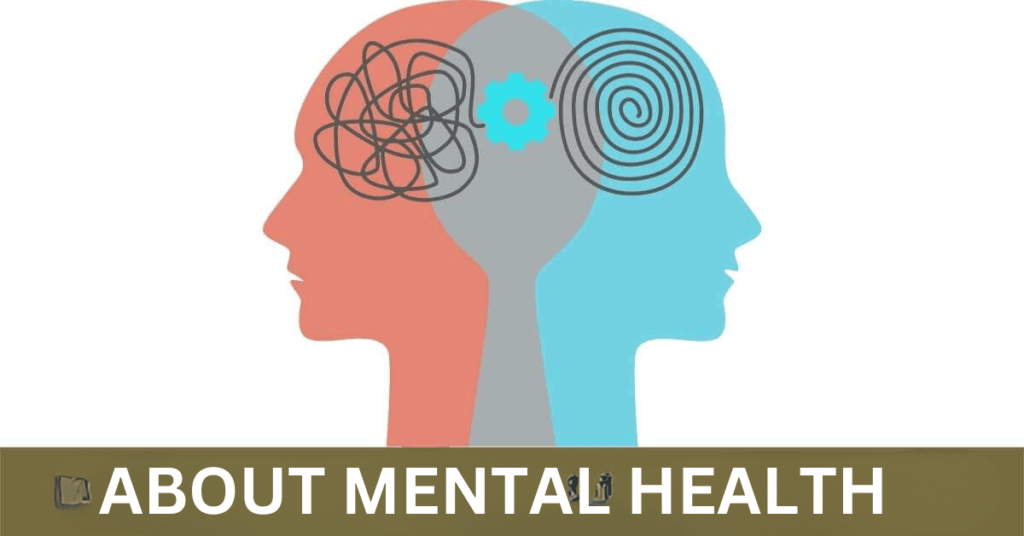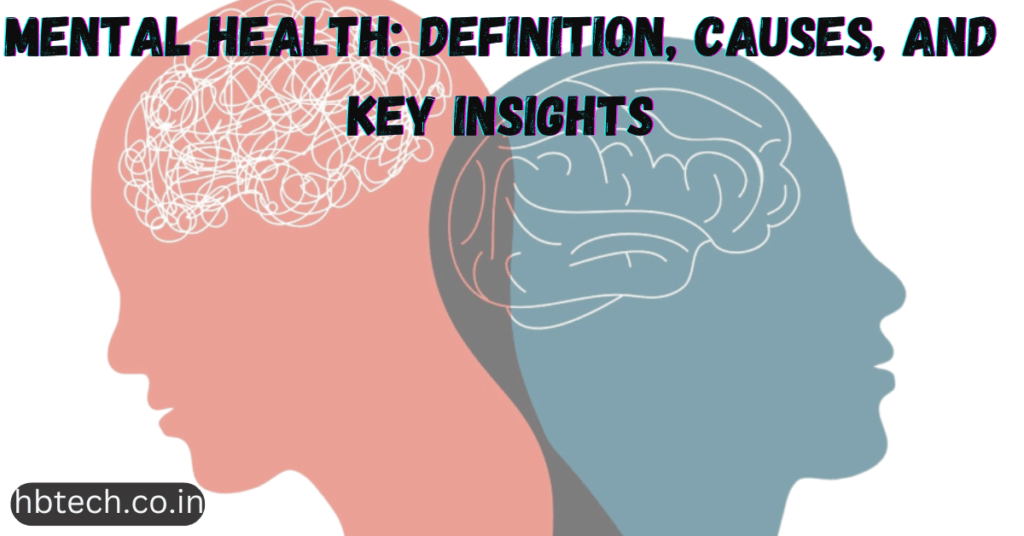Mental health is a vital part of our overall well-being. It affects how we think, feel and behave in our daily lives. Yet, it is often misunderstood or ignored. With more people talking about mental health issues these days. it ’s important to understand what mental health really means, what causes problems, and how we can help ourselves and others.
About Mental Health
Mental health is about emotional, psychological, and social well-being. It impacts how we handle stress, relate to others. and make decisions. Good mental health doesn’t just mean you’re free from mental illness–it also means you’re able to cope with life’s challenges and enjoy meaningful relationships

If you’re looking for detailed definitions, many mental health: definition pdf resources are available online to explain it in simple and clear terms.
Common Mental Health Issues
Mental health issues can range from mild stress to more severe conditions like depression or anxiety disorders. They affect not just the individual but also their family, friends and work life Here are some common mental health conditions:
- Depression: A prolonged feeling of sadness and loss of interest in life.
- Anxiety Disorders: Intense worry or fear that interferes with daily activities.
- PTSD (Post-Traumatic Stress Disorder): Emotional distress caused by a past traumatic event.
- OCD (Obsessive-Compulsive Disorder): Repetitive thoughts or actions that feel hard to control.
- Eating Disorders: Unhealthy relationships with food often linked to self-image issues.
What Causes Mental Health Issues?
Mental health issues don’t happen for just one reason; they are often caused by a mix of factors.
1. Biological Factors
- Family history: Mental illness can sometimes run in families.
- Brain chemistry: Imbalances in brain chemicals can contribute to issues.
2. Psychological Factors
- Early trauma, abuse, or neglect can have long-term effects on mental health.
- Stressful situations or unresolved emotional pain also play a role.
3. Environmental Factors
- Living in unsafe environments, such as areas affected by violence or poverty.
- Life events like losing a loved one or financial struggles.
4. Lifestyle Factors
- Lack of exercise, poor sleep. and unhealthy eating habits can negatively affect mental health.
- Misusing alcohol or drugs can also lead to serious mental health challenges.
You can find more detailed explanations in mental health pdf documents which provide valuable insights into these causes.
Helpful Mental Health Resources
Mental Health in Hindi
For people who prefer learning in Hindi, there are resources like mental health in Hindi, which explain these topics in a simple and relatable way. Spreading awareness in local languages helps more people understand and seek help when needed.
Mental Health PPT Presentations
Visual aids, like mental health ppt slides. are also great tools for learning. These presentations simplify complex ideas, making them easier to understand through images, charts, and key points.
How to Take Care of Mental Health
Maintaining good mental health is just as important as caring for your physical health. Here are some ways to support your mental well-being:
- Stay Active: Exercise regularly—it boosts mood and reduces stress.
- Eat Well: A healthy diet supports your body and brain.
- Connect with Others: Spend time with friends and family.
- Seek Professional Help: If you’re feeling overwhelmed. talking to a therapist or counselor can help.
- Practice Mindfulness: Meditation or yoga can calm your mind and help you focus on the present.
Breaking the Stigma Around Mental Health
Many people still hesitate to talk about mental health due to stigma. But avoiding the topic can lead to more harm. By discussing mental health openly, educating others, and supporting those in need. we can create a more understanding and accepting society.
Mental health is an important part of a happy and healthy life. By understanding its meaning, learning about common mental health issues, and recognizing their causes, we can take steps to improve our well-being. Resources like mental health pdf files and mental health in Hindi content make it easier for people to learn and talk about these topics
Remember, taking care of your mental health is a journey, not a one-time fix. With the right support and tools, we can all work towards better mental well-being.
Frequently Asked Questions(FAQs)
What is mental health?
Mental health refers to our emotional, psychological, and social well-being. It affects how we think, feel, and behave, as well as how we handle stress, relate to others, and make decisions.
Is mental health just the absence of mental illness?
No. Good mental health means not only the absence of mental illness but also the ability to manage stress, maintain relationships, and function productively in daily life.
What are some common mental health issues?
Some common mental health conditions include:
Depression
Anxiety disorders
Post-Traumatic Stress Disorder (PTSD)
Obsessive-Compulsive Disorder (OCD)
Eating disordersWhat causes mental health issues?
Mental health issues can be caused by a combination of factors, such as:
Biological factors: Genetics and brain chemistry.
Psychological factors: Trauma, abuse, or stress.
Environmental factors: Unsafe environments or major life challenges.
Lifestyle factors: Poor diet, lack of exercise, and substance abuse.Why is mental health important?
Mental health is essential for overall well-being. It influences how we handle stress, build relationships, and make decisions. Good mental health allows us to lead fulfilling and productive lives.
Related Posts
- 2-in-1 Laptops: Tablets and Laptops in One
- 5G Technology: What It Is, It Works and Impact on Our Lives
- 8K Gaming on a Laptop: Is It Worth It?
- A Simple Guide to Remote Work: Work from Anywhere, Anytime
- A Visit to the Museum of Jurassic Technology
- Affordable AI Solutions for Small Businesses









